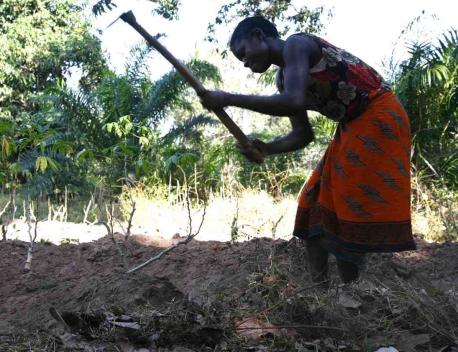
Laura Must Choose between Safety and Safe Water
What's one way to protect girls from violence and trafficking? Provide them with clean water.
Today, an estimated 1.6 million Mozambican children are orphans. Laura, 14, lives alone with her brother, Paulino, 7, in Mozambique. Since the death of their parents and three younger siblings several years ago, Laura has been her family of two's head of household.
Laura is responsible for everything. Each day she walks to a neighbor's farm two hours away, where she works in exchange for food for herself and Paulino. With no clean water nearby, she must wash their clothes in the river and spend part of each day hauling water back to their hut for drinking and cooking.
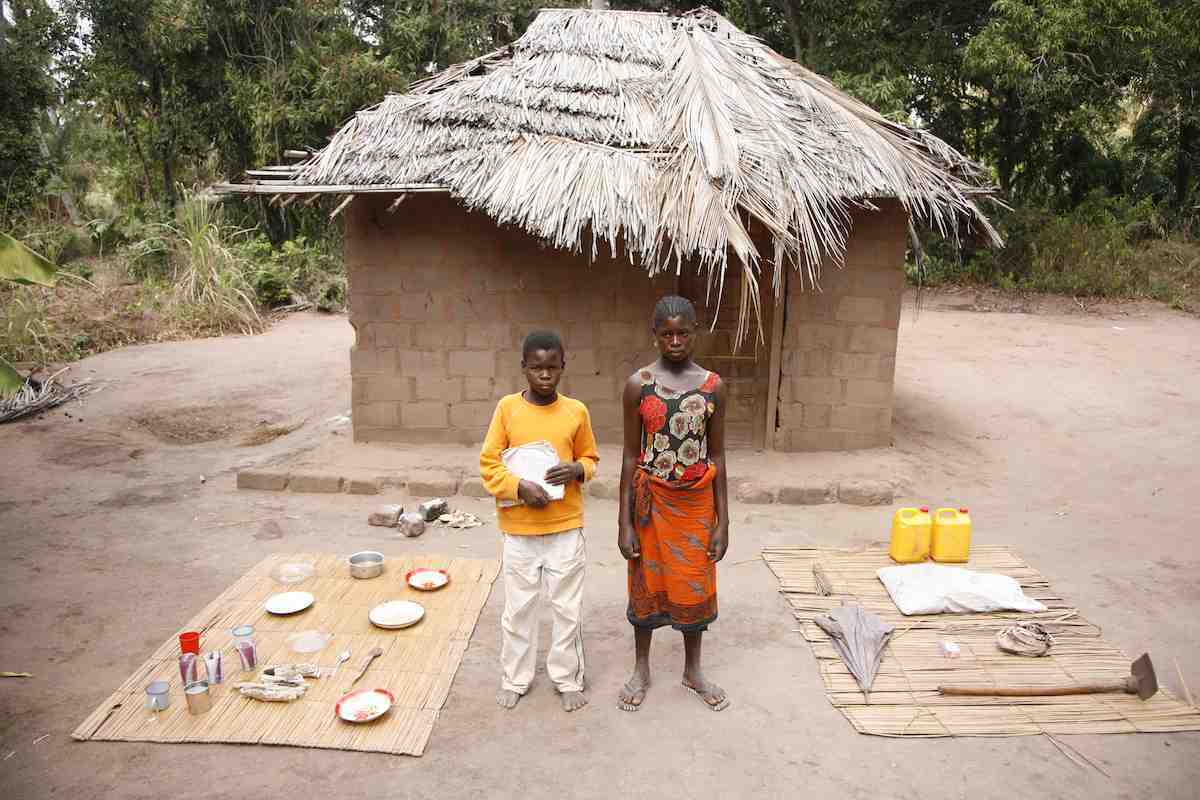
Laura and Paulino stand in front of their hut, which a local activist found for them after their parents died, in the Mudurini community of Mozambique's Maganja da Costa District.
Clean water is essential for survival — and for other vital reasons, too. Children without ready access to clean water are less likely to attend school, more likely to be malnourished.
But that's not all. Long walks to fetch water leave girls exposed. Children forced to fend for themselves, like Laura, are particularly vulnerable to the risk of assault and child trafficking.
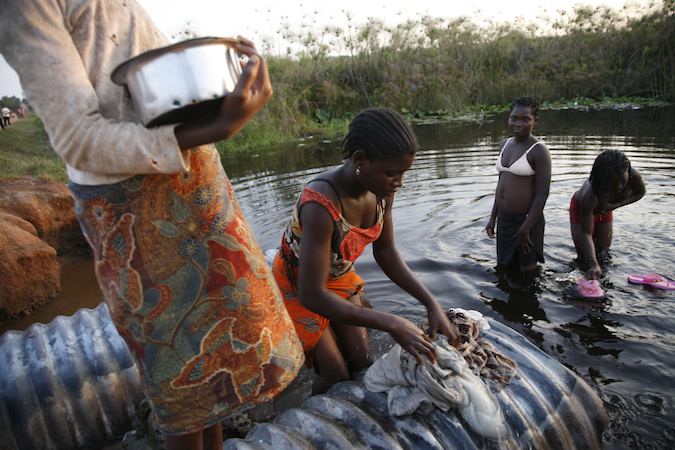
Laura washes clothes at a river bank in the Zambézia Province of Mozambique while other girls bathe nearby. Girls often bathe in a group to protect one another from assault and violence at the river.
A lack of clean water and sanitation facilities may not be the root cause of violence or child trafficking. But it is certainly a factor that greatly increases girls' vulnerability.
UNICEF is working in Mozamique — and many other countries — to bring safe, clean water closer to home via innovative well-drilling initiatives and school-based water and sanitation programs. Approximately 7,000 children die every year from diarrhea caused by unsafe water and poor sanitation in Mozambique.
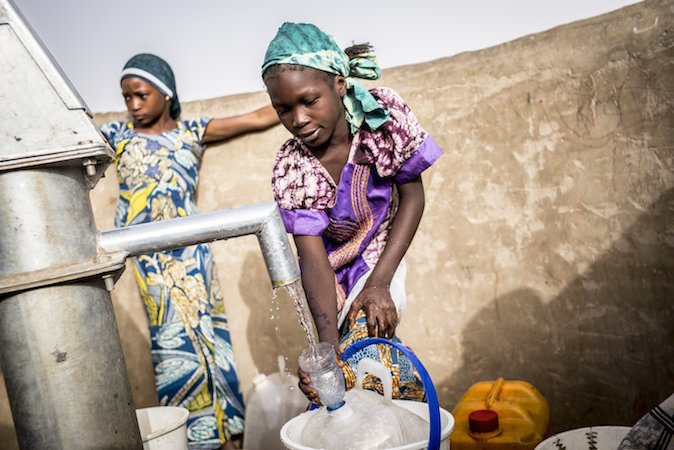
Girls pumping safe, clean water from a UNICEF-drilled well in a refugee camp in Dar Es Salam, Chad. UNICEF also organized hygiene promotion for well users and refugees.
On World Water Day 2016, UNICEF asks to us remember that “universal and equitable access to safe and affordable drinking water” is a basic right that all of us should enjoy, no matter where we live.
Girls like Laura — and other children in vulnerable situations — need safe drinking water near their homes or schools. Their rights to an education and personal safety depend upon it.
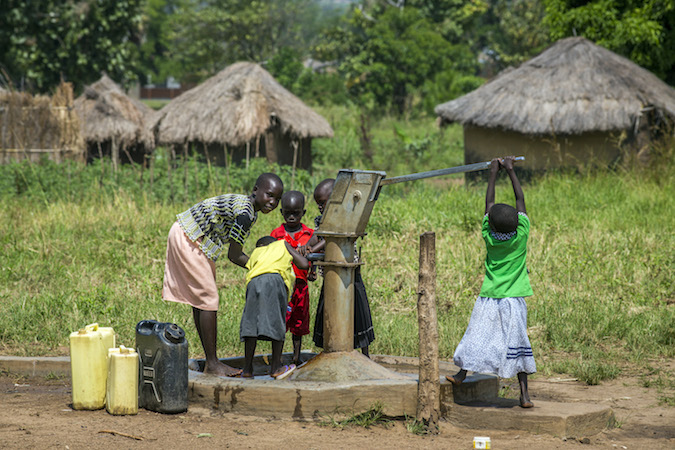
Girls in the Arua Distrct of Uganda pump water from a well created by UNICEF and its partners. Laura would need a similar one in her Mozambican village.
How can you help secure this basic right around the world?
Stay informed!
Follow UNICEF USA on Facebook this month for more stories about how clean, safe water and adequate sanitation can save and improve kids’ lives. At the UNICEF USA Instagram page, find photos showing the impact of safe water on children around the world. Participate in the conversation about this important issue on Twitter.
You can also learn more about our global End Child Trafficking Campaign. Follow our campaign on Twitter.
Take action!
Join us for the tenth year of the UNICEF Tap project and give clean water to children in need.
HOW TO HELP
There are many ways to make a difference
War, famine, poverty, natural disasters — threats to the world's children keep coming. But UNICEF won't stop working to keep children healthy and safe.
UNICEF works in over 190 countries and territories — more places than any other children's organization. UNICEF has the world's largest humanitarian warehouse and, when disaster strikes, can get supplies almost anywhere within 72 hours. Constantly innovating, always advocating for a better world for children, UNICEF works to ensure that every child can grow up healthy, educated, protected and respected.
Would you like to help give all children the opportunity to reach their full potential? There are many ways to get involved.



